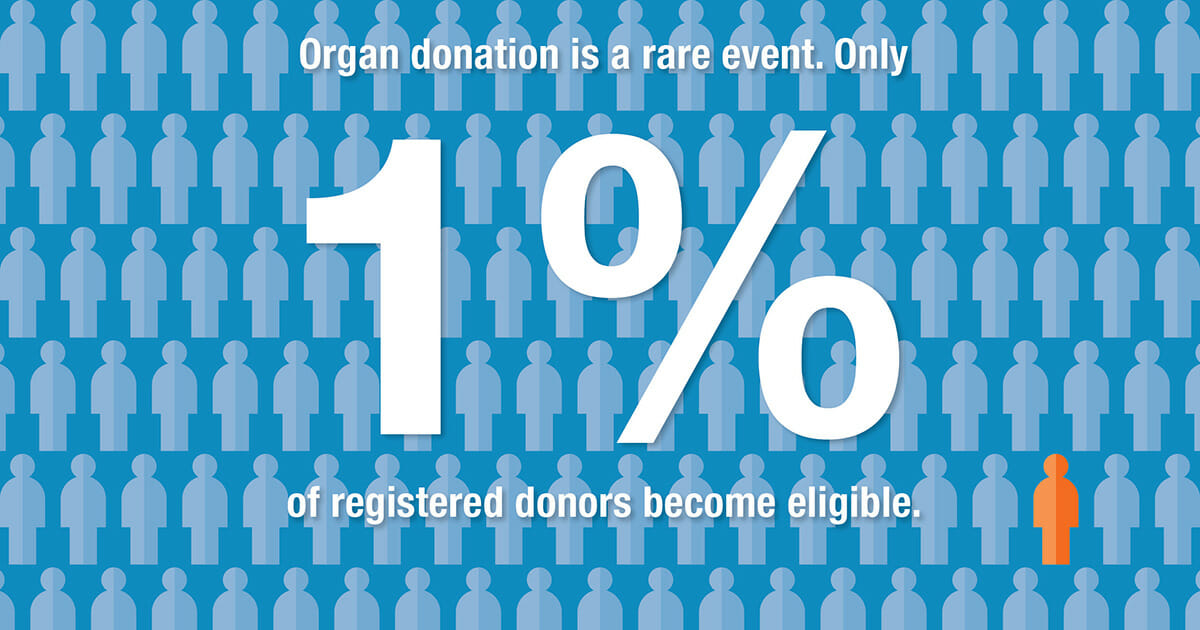Is Organ Donation Rare?
Yes! A person becoming an organ donor is incredibly rare. In fact, only about 1% of people who are registered as organ donors can donate after they pass away. Here’s why…

The opportunity to be an organ donor is unique because only a specific combination of circumstances will allow a person to donate. For someone to become an organ donor after they’ve passed away, they must:
- Experience brain death or a Non-survivable injury
- Pass away in a hospital on ventilated support
That’s it. These things must happen in order for a person to be able to be an organ donor (criteria for tissue and eye donation is not the same).
Consider what this means: people passing away at home, in a car accident, or anywhere outside a hospital can not be organ donors.
Unique Circumstances for Organ Donation
When a person has a severe brain injury, they may be completely unable to breathe on their own. A ventilator is required to help the person breathe and supply adequate oxygen, so that organs and tissues do not become damaged.
Some brain injuries can be so severe that all brain functions stops. This is called brain death. With brain death, a ventilator is required to do 100% of the work for a person’s lungs.
This creates the unique situation when organ donation is possible. The person has passed away but because the ventilator is breathing for them, their organs are still receiving oxygen. For organ donation to happen, a person must stay on the ventilator up until the time the organs are being recovered to continue providing that oxygen.
Donation by the Numbers
In the United States about 2,800,000 people pass away each year and about 715,000 of those passes in a hospital. Of those passing away in a hospital, only 150,000 are on ventilated support and only 16,000 of those are medically eligible to donate and only about 10,000 of those people actually become donors.
 Skip to main content
Skip to main content
